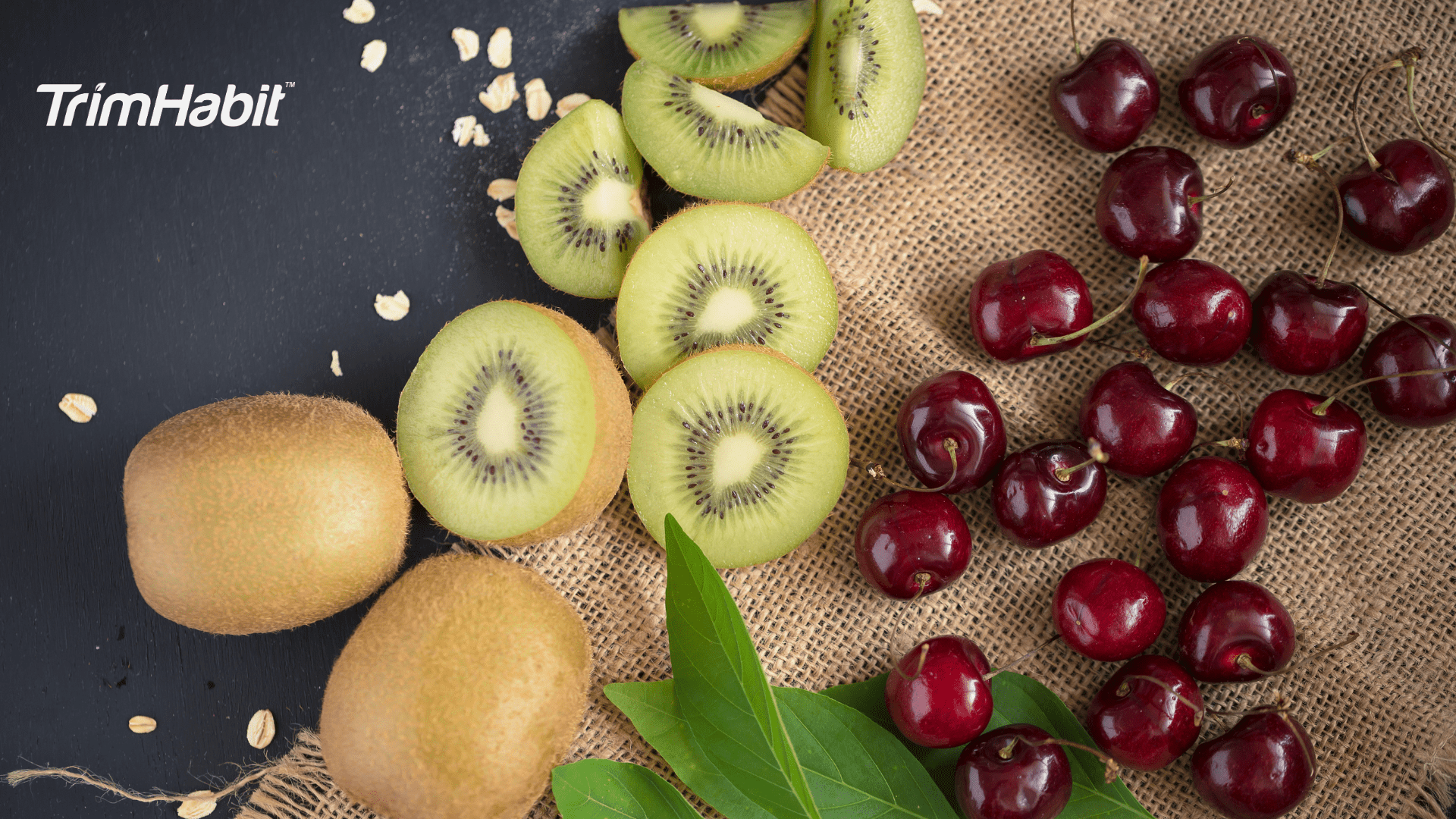In pursuing weight loss, choosing the right foods can play a pivotal role in achieving and maintaining a healthy lifestyle. Fruits, renowned for their rich nutrient profiles, are not only delicious but can also be instrumental in minimizing inflammation—a factor often linked to weight gain and various health issues.
In this exploration of the best low inflammation fruits for weight loss, we delve into the vibrant world of fruits that not only contribute to a balanced diet but also offer potential benefits in managing inflammation and supporting weight loss goals. Join us on a journey to discover the colorful array of fruits that can be valuable allies in your quest for a healthier, more vibrant life.
What Is An Anti-Inflammatory Diet?
When your body identifies foreign entities like invading microbes, plant pollen, or chemicals, your immune system activates, initiating a natural response known as inflammation1. This process is crucial for safeguarding your health, as intermittent episodes of inflammation help protect against genuine threats.
Nevertheless, there are instances when inflammation persists continuously, even in the absence of any immediate threat. This persistent inflammation can turn into a detriment to your well-being. Numerous prevalent diseases, such as cancer, cardiovascular disease, diabetes, arthritis, depression, and Alzheimer’s, have been associated with prolonged and chronic inflammation2.
Benefits Of Anti-Inflammatory Foods
Including anti-inflammatory foods in your diet may act as a protective shield, helping to decrease persistent low-grade inflammation that could otherwise elevate the risk of developing various chronic diseases, contributing your overall well-being in the following ways:
1. Reduced Risk of Chronic Diseases
– Anti-inflammatory foods help mitigate the inflammation that contributes to chronic diseases. Regular consumption may lower the risk of conditions such as heart disease, diabetes, and certain cancers3.
2. Heart Health
– Many anti-inflammatory foods support cardiovascular health by reducing inflammation and improving factors like blood pressure and cholesterol levels. Berries, fatty fish, and nuts are examples of heart-healthy, anti-inflammatory foods4.
3. Weight Management
– Chronic inflammation is associated with obesity5. Anti-inflammatory foods, such as fruits, vegetables, and lean proteins, can aid in weight management by promoting satiety and supporting metabolic health.
4. Improved Cognitive Function
– Chronic inflammation is linked to cognitive decline and neurodegenerative diseases like Alzheimer’s. Anti-inflammatory foods rich in omega-3 fatty acids, antioxidants, and vitamins support brain health and may reduce the risk of cognitive disorders6.
5. Boosted Immune System
– Anti-inflammatory foods, especially those high in vitamins C and E, help strengthen the immune system7. A robust immune system is better equipped to defend the body against infections and illnesses.
6. Reduced Oxidative Stress
– Anti-inflammatory foods are often rich in antioxidants, which combat oxidative stress in the body8. Reducing oxidative stress is essential for overall health and longevity.
It’s important to note that while incorporating anti-inflammatory foods into your diet is beneficial, overall lifestyle factors such as regular exercise, sufficient sleep, and stress management also play crucial roles in reducing inflammation and promoting optimal health. Additionally, individual responses to specific foods may vary, so it’s advisable to tailor dietary choices to personal preferences and health conditions. Consulting with a healthcare professional or a registered dietitian can provide personalized guidance based on individual needs and goals.
Best Low Inflammation Fruits For Weight Loss
Here’s a more detailed description of fruits that are considered low in inflammation and may be beneficial for those who are trying to lose weight:
1. Berries (Blueberries, Strawberries, Raspberries)
Berries are renowned for their dual benefits of being low in inflammation and supportive of weight loss. Packed with antioxidants, especially anthocyanins, these fruits help combat inflammation at the cellular level9. Additionally, their high fiber content aids in promoting a feeling of fullness, contributing to weight loss goals. Blueberries, strawberries, and raspberries can be delightful additions to your healthy diet, providing a burst of flavor while being kind to your waistline.
2. Cherries
Cherries stand out as a flavorful fruit with potent anti-inflammatory properties. Loaded with anthocyanins and quercetin, these compounds work synergistically to reduce inflammation10. Beyond their anti-inflammatory prowess, cherries may play a role in weight loss by addressing inflammation linked to obesity11. Including cherries in your diet introduces a sweet and tangy flavor while potentially supporting your weight management journey.
3. Pineapple
Pineapple’s tropical sweetness comes with the added benefit of bromelain, an enzyme known for its anti-inflammatory effects. This enzyme not only contributes to reducing inflammation but also supports digestion12. With its low-calorie content and high water concentration, pineapple makes for a refreshing snack choice, aligning with weight loss objectives.
4. Avocado
Avocado, although commonly associated with healthy fats, also brings anti-inflammatory benefits to the table. Rich in monounsaturated fats, particularly oleic acid, avocados help combat inflammation13. The inclusion of avocados in a weight loss-oriented diet is advantageous, as their healthy fats contribute to a sense of satiety, aiding in portion control and overall weight management14.
5. Watermelon
Beyond being a hydrating summertime favorite, watermelon contains lycopene, contributing to its anti-inflammatory properties15. With its high water content and relatively low-calorie count16, watermelon serves as a satisfying and hydrating option for those aiming to manage their weight while enjoying a naturally sweet treat.
6. Grapes (Red and Purple)
Grapes, especially red and purple varieties, boast antioxidant resveratrol, known for its anti-inflammatory effects17. While enjoying the natural sweetness of grapes, individuals may also benefit from resveratrol’s potential to support metabolic health, aligning with weight management goals18.
7. Apples
Apples are not only a symbol of crisp freshness but also a source of anti-inflammatory compounds, including quercetin19. The high fiber content, particularly pectin, supports digestive health and helps control appetite20, making apples a satisfying and weight-conscious snack choice.
8. Kiwi
Kiwi emerges as a vitamin C powerhouse with anti-inflammatory properties18. Its high fiber content contributes to digestive health, while vitamin C supports the immune system during weight loss efforts21. Kiwi’s unique flavor adds a refreshing twist to your fruit selection while potentially aiding in your wellness journey.
9. Oranges and Citrus Fruits:
Citrus fruits, including oranges, are recognized for their high vitamin C content, delivering anti-inflammatory benefits. The citrus flavonoids further contribute to reducing inflammation22,23. With their low-calorie count and fiber content24, oranges and citrus fruits provide a satisfying and nutritious addition to a weight-conscious diet.
10. Papaya
Papaya’s tropical appeal extends beyond its taste, as it contains papain, an enzyme associated with anti-inflammatory effects. With its moderate calorie content, high fiber, and digestive support, papaya offers a tropical flair to your diet while potentially aiding in weight management25.
Adding these low-inflammatory fruits to your diet doesn’t just inject vibrant flavors into your meals; it also enhances your journey toward a healthy body weight, making your meals not only nutritious but enjoyable too.
Key Takeaway
Navigating chronic inflammation is akin to managing an unwelcome guest—it disrupts your body’s balance and sets the stage for various diseases. Your everyday choices, particularly in diet and lifestyle, either aggravate these inflammatory sparks or help soothe them.
Opting for anti-inflammatory fruits isn’t merely a passing health trend; it’s a strategic move to fortify your body’s defenses and support a healthy weight. By incorporating these nourishing fruits into your routine, you’re essentially equipping your system to combat inflammation effectively while also aiding in weight management. This proactive approach not only reduces your vulnerability to diseases but also serves as a cornerstone for elevating your overall quality of life.
Citations
16 FoodData Central. (n.d.). https://fdc.nal.usda.gov/fdc-app.html#/food-details/167765/nutrients
24 FoodData Central. (n.d.). https://fdc.nal.usda.gov/fdc-app.html#/food-details/169918/nutrients









